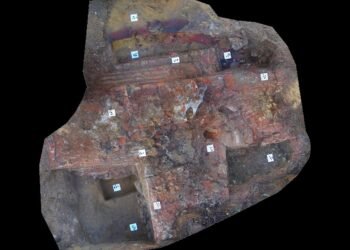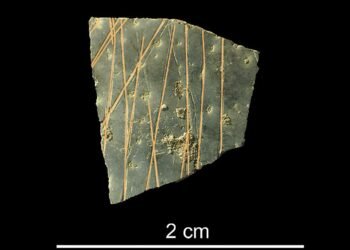A metal detectorist, Glenn Manning, attending a rally in the North Cotswolds, England, discovered a pair of 1,800-year-old Roman cavalry swords still encased in the remnants of their wooden sheaths.

The swords, likely of the type known as spatha, were commonly used by Roman cavalry officers during the Roman Empire from around 160 CE until the third century CE. Due to their long, straight blades, they were suitable for use on horseback.
The discovery of multiple Roman swords in a single location in Britain is rare. According to archaeologist Simon James from the University of Leicester, who analyzed the swords, “In terms of parallels, I can’t think of finds of more than one sword being deposited in any similar circumstance from Roman Britain.”
A comparable discovery involved a pair of similar swords found in Canterbury, where their owners were found buried face down in a pit within the city walls, suggesting a clandestine burial, possibly related to a double murder.
The swords will undergo further analysis using X-rays, and the site where they were found may be revisited for additional excavations. The swords have been handed over to the Corinium Museum for preservation, and it is expected that they will be displayed for the public in the coming years.
Cllr Paul Hodgkinson, Cotswold District Council Cabinet Member for Leisure, Culture, and Health, expressed excitement about the discovery, stating, “This new discovery shows what an incredibly deep history the Cotswolds has. People famously asked, ‘What have the Romans ever done for us?’ Well, they have just given us some amazing examples of weapons used almost 2,000 years ago when Cirencester was the second biggest town in Britain.”
Earlier this summer, a similar discovery was made in Germany, where a 1,300-year-old spatha sword was found buried with a Frankish warrior. These swords played a crucial role in Roman cavalry.























